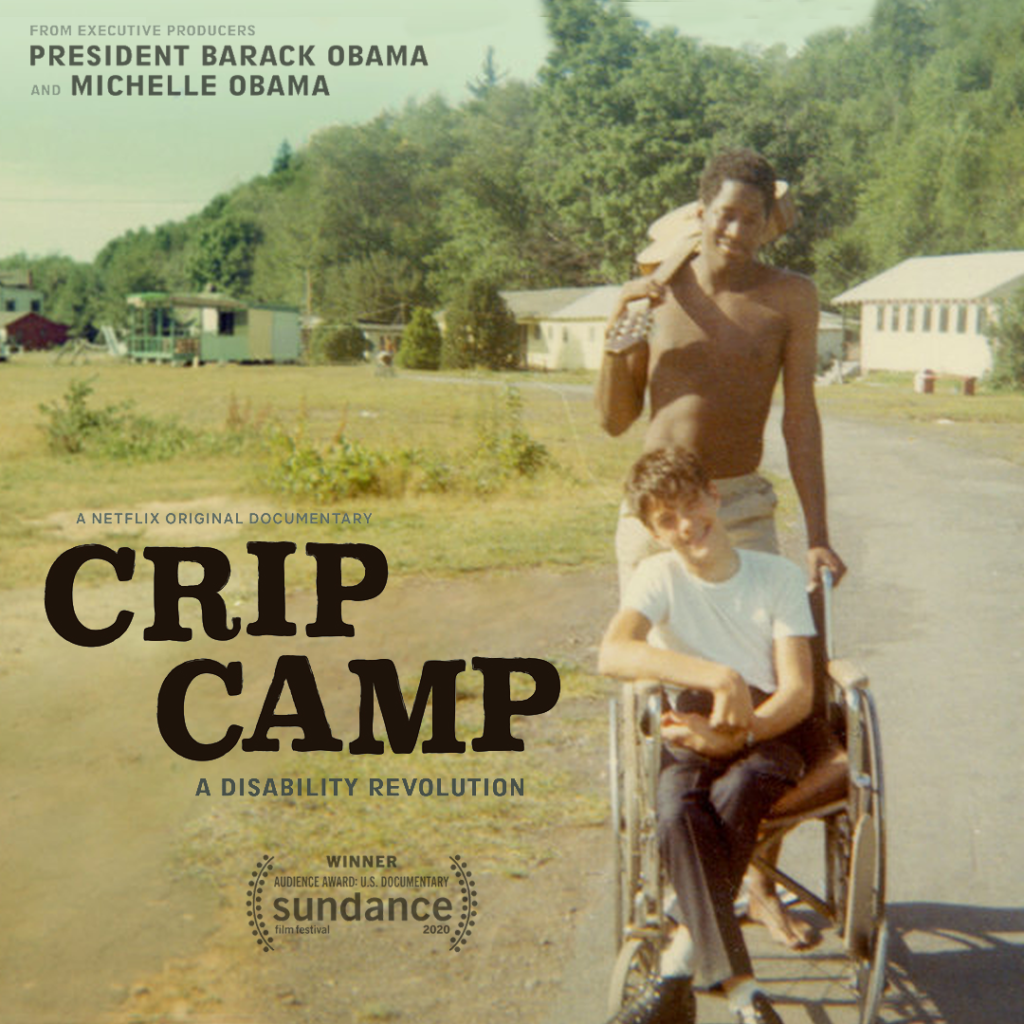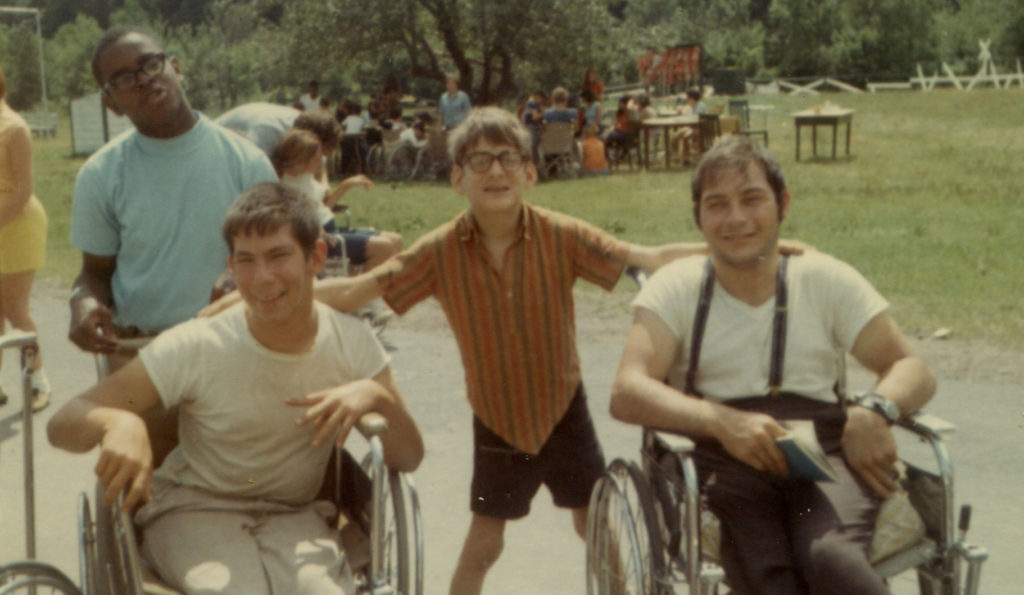“Crip Camp: A Disability Revolution”

Oscar-nominated for 2020 Best Documentary Feature, Crip Camp is directed and produced by Jim Lebrech, who uses a wheelchair and is partly financed by Michelle and Barack Obama’s production company, Higher Ground.
Released by Netflix in March 2020, this little-known story portrays a group of young disabled teenagers at Camp Jened, their experience serving as a catalyst for the disability rights movement in the United States. After becoming empowered at camp in upstate New York in 1971, several key campers became activists. Masterminding a month-long sit-in at the HEW branch office in San Francisco, blocking traffic with their wheelchairs and bodies lying on the street, these young activists embarrassed Carter administration secretary James Califano to enact major disability rights legislation (Section 504 of the Rehabilitation Act) which evolved into the eventual passage of the American Disabilities Act of 1990 (ADA). Crip Camp is perhaps best comprehended as an extension of the Civil Rights Act of 1964.
This powerful and moving documentary reveals archival footage at Camp Jened, at the San Francisco sit-in, and in the post-ADA lives of the former teenagers, now past middle-age. Footage of campers who had to sit-in for over a month in the branch office of HEW, without their assistants who were relied upon for bathroom and mobility assistance, without necessary catheters, food and drink withheld by federal officials, is unconscionable and shocking to watch. So are film clips of Willowbrook, an institution for disabled children, visually an Abu Ghraib warehouse of unimaginable cruelty.

Crip Camp is, first and foremost, primarily Judy Heumann’s story. A young fifteen-year old camper, she awakens to the demand of their civil rights, after hearing fellow campers discuss their fear of institutionalization. Heumann becomes a charismatic, determined, and commanding leader. Organizing and demanding a hearing before Congress, after Bay Area coverage of their protest and sit-in is reported by only one local television channel, Heumann orders her young cohort– without access to ramps or elevators,– to crawl on their stomachs up the steps of the federal building, hauling their paraplegic bodies after them. This footage of people with polio, cerebral palsy, and other disabilities is gut-wrenching.
Crip Camp is essential to understanding what is unknown territory for many viewers. Campers give unexpected responses about privacy, sexuality, and solitude. Unconventional trajectories of local Black Panthers’ support are juxtaposed next to the cowardice of local and national politicians on both sides of the aisle. Still, in spite of the odds, this documentary highlights human resilience in the face of the nation’s heart of darkness. People with disabilities want acceptance just like everyone else. Merely achieving the result of being seen and heard, the disabled achieve a psychological as well as legal revolution, still in the early stages. The Americans with Disabilities Act of 1990 continues to have a huge impact in raising awareness about inclusion of all people globally and removing obstacles to personhood. Groundbreaking and unforgettable.
Note: This is a recent USA Today article byJudy Heumann, who remains very active on disability rights. https://www.usatoday.com/story/opinion/voices/2021/04/23/why-oscar-nominated-crip-camp-victory-disability-rights-column/7333682002/
Availability: Netflix streaming

Patrick
Thanks for the review. I watched it last night and thought it was very well done. I had a quadriplegic cousin who lived in Berkeley in the 1980’s. He wasn’t an activist but found the social support there unlike any other place in the country.
lenore gay
Yes, this is a film I’d like to see. Thanks.
Hope all’s well with you. I’ve finished wizard book and have sent it to a few SF/fantasy publishers. Assumed that SWP wouldn’t be interested in fantasy. Now back to work on the sequel of Shelter of Leaves.
Cheers!
Lenore